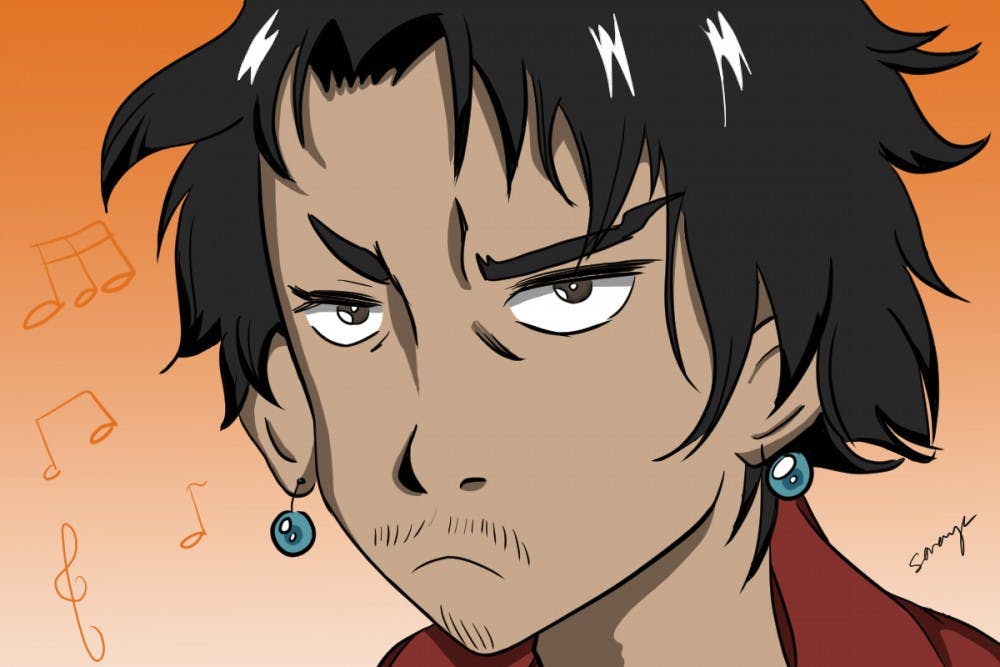When you hit your 20s, being an anime fan who wants adult friends who aren’t necessarily also into ninjas, super–powered high school girls, and giant mech battles proves quite the challenge. Aside from closeting your weeaboo status, one of the textbook methods to avoid universal derision and disdain is attempting to argue for certain shows’ inherent worth and that they’re “not all like Dragonball and Naruto, dude, you should really check some out.” The go–to series for this phenomenon is Cowboy Bebop, Shinichiro Watanabe’s Space–Western, also famous for its heavy jazz–influenced soundtrack. Its genius and cult status amongst American audiences is often explained due to this mixing of styles from east and west.
Interestingly, Watanabe’s trademark mix is much more prevalent in his follow up to Bebop, Samurai Champloo. Champloo (which roughly translates from the Okinawan “champuru” to mean "mix") would go on to become another crossover sensation. Set in an alternate Edo–era Japan, where samurais and tea houses coexist alongside graffiti tagging, baseball and east–coast hip hop, it follows three outcasts in their quest to track down the mysterious “samurai who smells of sunflowers.” Over the course of 26 episodes, Watanabe works his magic with his trademark gorgeous animation and easily bingeable self–contained episodic style, but the most memorable aspect is the appropriately anachronistic hip–hop soundtrack; the genius behind which was the equal parts elusive and legendary Japanese beatmaker, Jun Seba, more commonly known by the stage name Nujabes.
Eight years ago last week on February 26th, Seba was tragically killed in a car crash, cutting short what was an already extremely accomplished, but largely underground, sampling career. What was surprising was the enormous outpouring of grief experienced not only within the fledgling Japanese hip–hop scene, but among anime fans in America, and it's easy to see why. Departure, the most famous of the four Champloo soundtrack records was Nujabes’ breakthrough record in the West and for fans of the show, contains by far the most memorable tracks. His “champloo” style of production, where he repurposes old jazz classics for a more modern audience poetically reflects the show’s setting and plot, where dissonant people and themes are brought together to create a wonderful blend and amount to something more beautiful than its various constituents. An obvious highlight is the first track, “Battlecry," over which frequent Nujabes collaborator and former disciple Shing02 spits—this track was used as the opening credits for the show and holds a special place for any regular watcher.
Departure may have gained exposure due to its attached show, but it holds more than enough merit to be considered a fine instrumental hip hop album in its own regard. Each beat is perfectly nuanced to its vocalists strengths and straddles the line delicately between being arresting yet also being absolutely integrated into the landscape it's supposed to enrich. His style absolutely transcends the simple boom–bap chill–hop that it's often pigeonholed into and creates an immense sense of nostalgia, despite its modern sound. Every Nujabes beat sounds spookily familiar, and I mean that in the least derogatory way possible. I can name very few artists that genuinely create music which truly sounds “timeless," and Nujabes is definitely in that camp.
Expert chopping of samples from another era of music and an untimely death followed by posthumous acclaim might bring another legendary beatmaker to mind: J Dilla. Widely slated as having paved the way for Kanye’s enormous success with soul–sampling, Dilla is almost universally held in god–like levels of reverence among hip–hop heads and rappers alike, some even making claims that the east–coast scene revolved around him. Nujabes’ influence in Japan is similar and from the few interviews I have seen, it seems that anyone and everyone who had the privilege of working with him was touched by his immense talent and forethought. Rather strangely also, Dilla and Seba were born on the exact same day, which, of course, helps fuel the comparison.
Nujabes’ perhaps most understated legacy is that you almost certainly listen to him and people who sound just like him on daily basis. Any YouTube study chill–hop playlist, decorated with 10 second loop of an anime clip sounds like or will almost definitely include a Nujabes beat—such is the lasting legacy and unique nature of his sound. On a final note, Samurai Champloo, really is excellent, and even as simply a hip hop fan or if you’re curious, I implore you to check it out. It's not at all like Dragonball or Naruto, dude…

